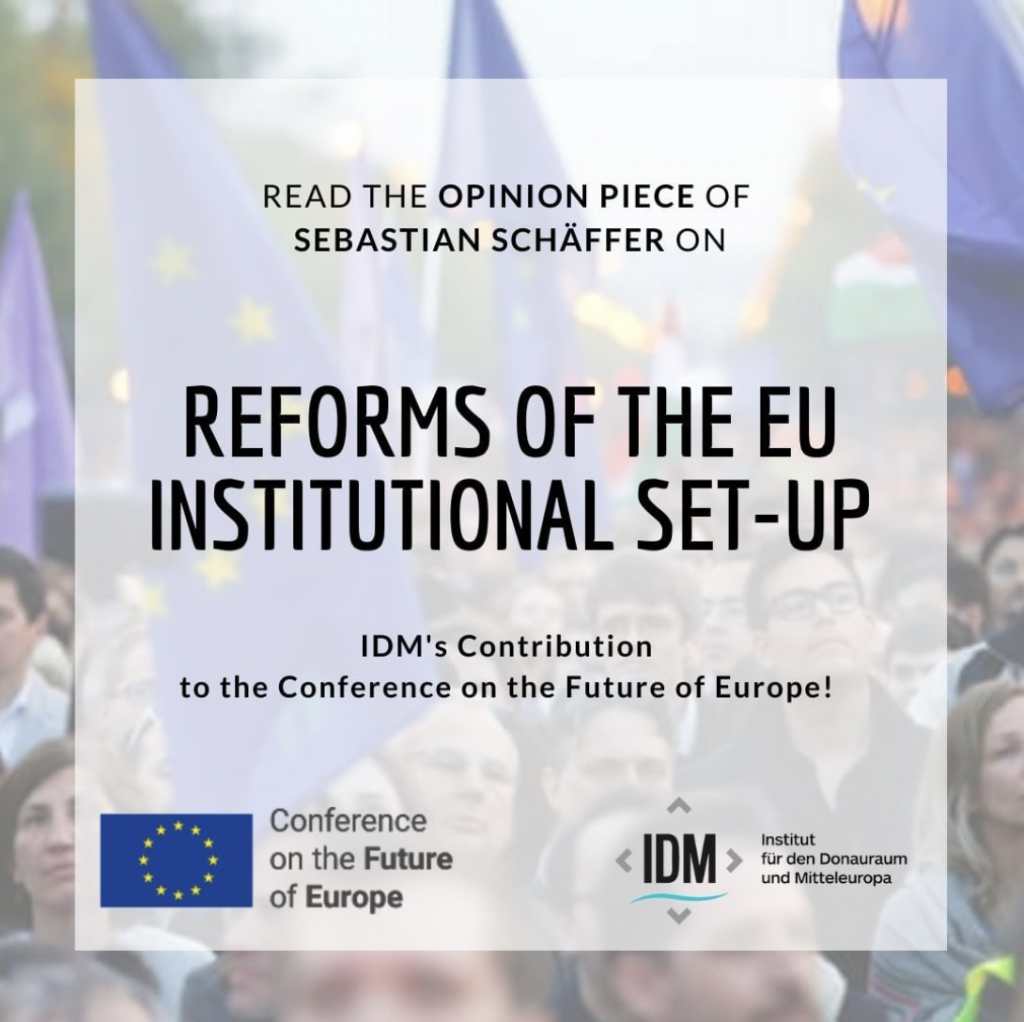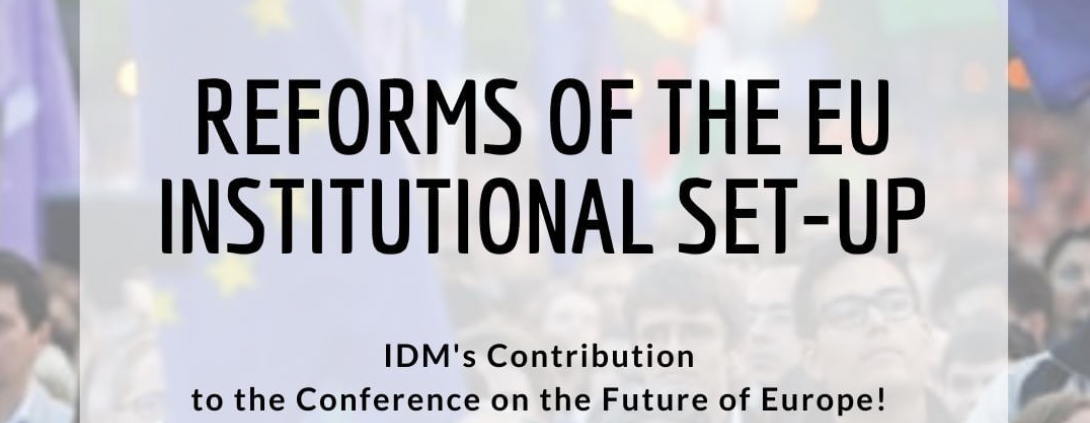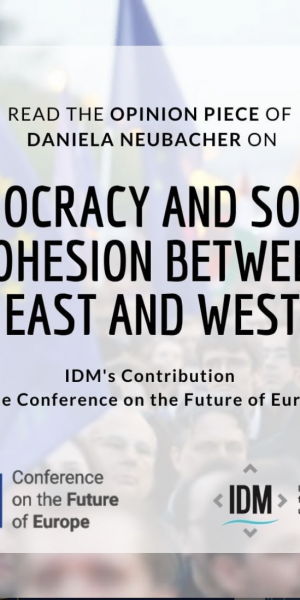Opinion Piece (CoFoE): Reforms of the institutional set-up of the EU
Reforms of the institutional set-up of the EU
Sebastian Schäffer

The need for a reform of the EU institutional set-up has been ignored for far too long. However, the way it is designed is now causing slowness and status-quo on questions such as enlargement, the environment or foreign policy. To overcome these apathies, the EU should firstly moderate the weight a single member can have. All decisions on the European level need to be taken with a qualified majority instead of unanimity. Plus, the reform of the institutional set-up needs to provide safeguard mechanisms, which will prevent one or a few heads of state or government to interfere with decision-making and/or work against the democratic principles in their country.
A European body that would represent the regions (a second chamber next to the European Parliament, with representatives from the European Regions replacing the Council of ministers) should be created to work to ensure that civil society is better listened to, consulted, and understood, and finally to promote mutual understanding. By granting both the EP and the Council of Regions the right of initiative, not only the role of the structural and cohesion funds would gain more importance but also the influence of national governments on European decision-making would be more balanced. Building a second chamber as a kind of a senate is necessary and would furthermore help to develop the common foreign policy of the EU.
Brave and bold steps need to be taken. The conference on the Future of Europe is one possibility. However, the pressure from the civil society on the decision makers to really work on restructuring governance in Brussels needs to be increased.
In order to launch a break-through reform of the institutional set-up, a European referendum held jointly, and not separately in each member country, could foster discussion beyond national politics and provide a real basis for a reform of European governance. A legal basis for holding such a referendum needs to be passed. Another possibility to be discussed could be that a negative outcome would not hold the whole process of a treaty reform as is has been the case, amongst others, in 2005 and 2008, but rather if the decision is to remain in the EU under the new treaty or to leave.
Get engaged in the discussion on this subject! Add your comment here.
What is Conference on the Future of Europe (CoFoE)?
It is an initiative of the European Parliament and the European Commission with an aim to promote democracy, build a more resilient Europe and involve citizens as equal partners in the discussion on the future of the EU. Since 19 April 2021 also you can participate through the multilingual digital platform of the Conference.
The platform offers each European citizen the possibility to express their wishes for the future of Europe. Participating is easy: you can share your opinion, react to other citizens’ ideas, moderate your own events, or join live debates and workshops with other citizens. Don’t hesitate to engage in this exciting discussion to shape the Europe of the future!



